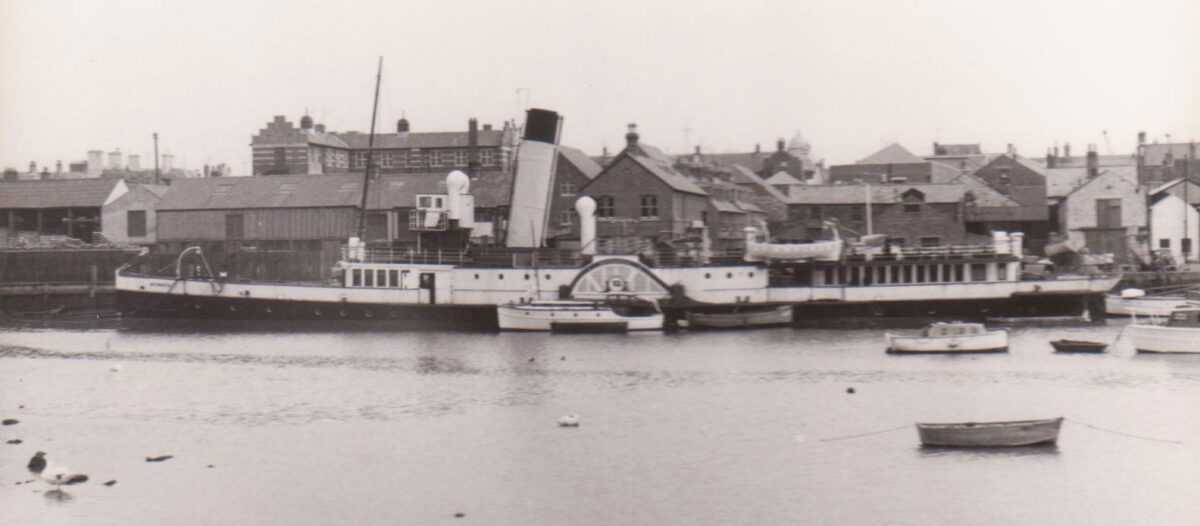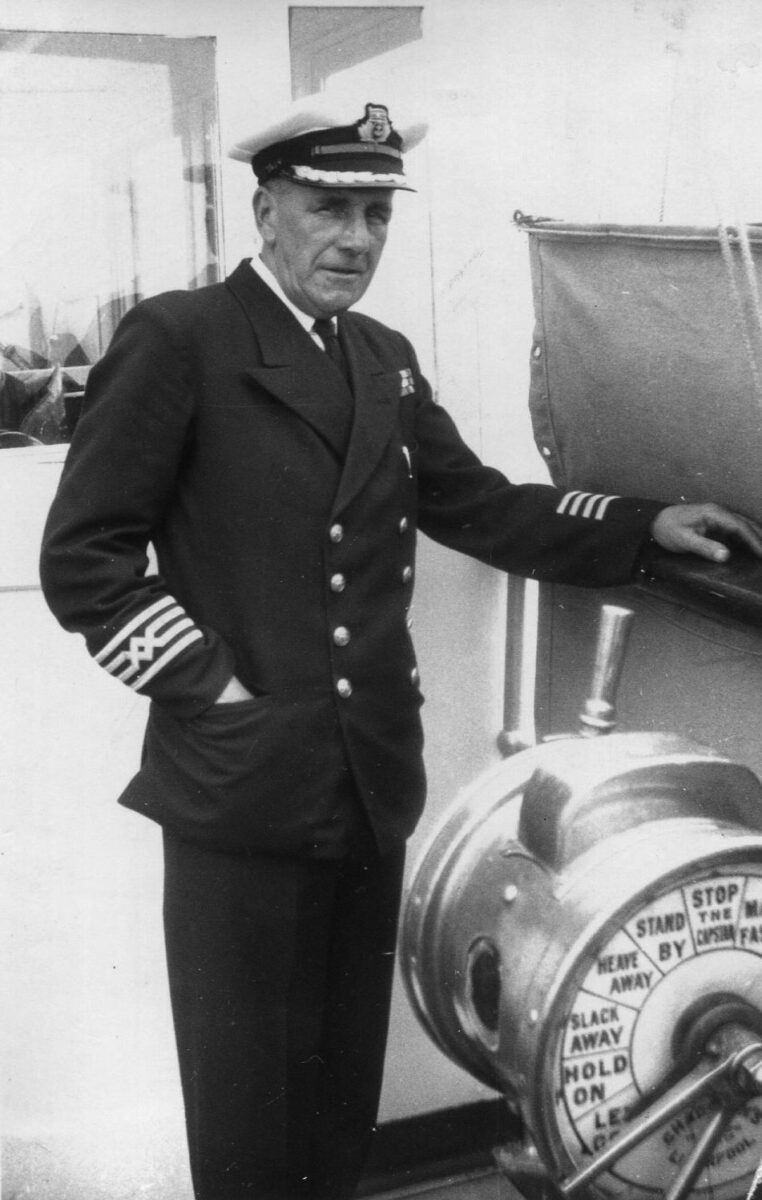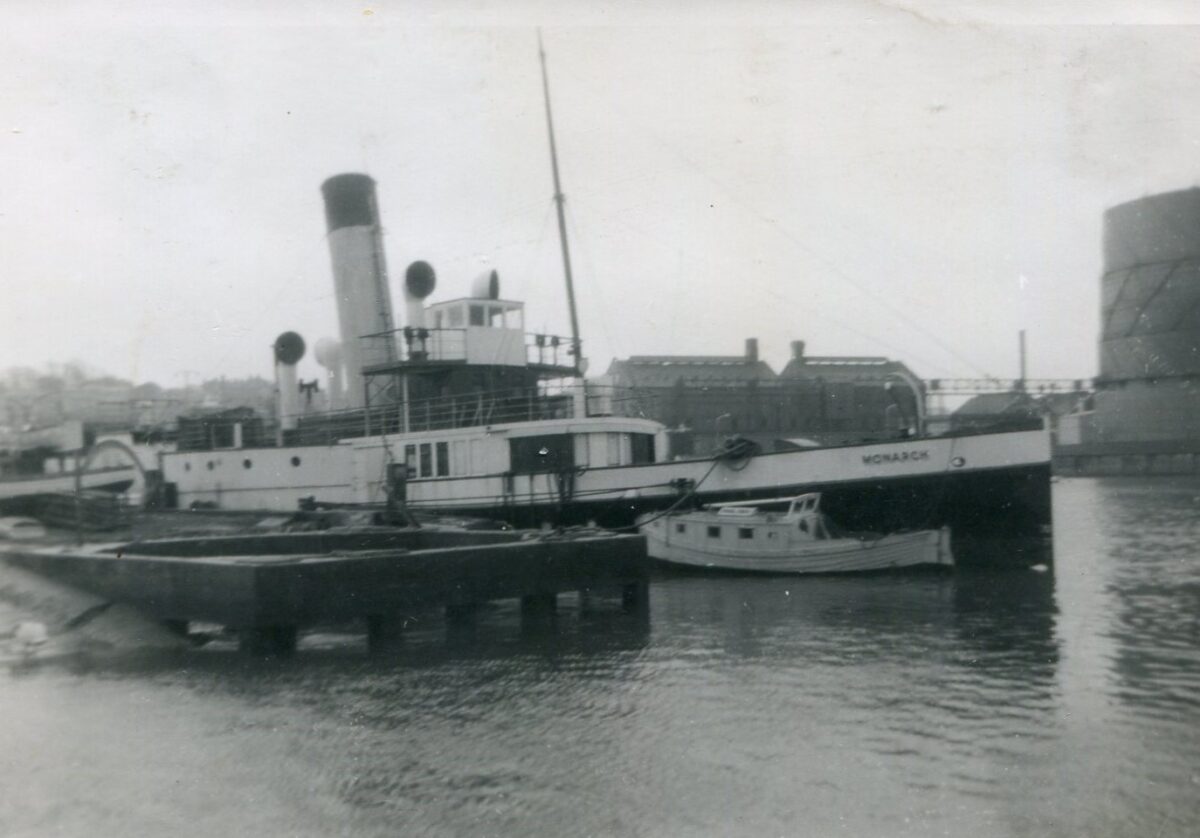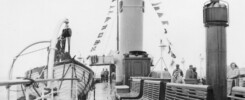
Wednesday 7th September 1960 was Monarch’s penultimate day in service. She was due away from Poole (9.15am) for Bournemouth (10.15am – 10.45am), Swanage (11.30am), Bournemouth (12.15pm – 2.30pm), Swanage (3.15pm), Bournemouth (4.15pm), Swanage (5pm), Bournemouth (5.45pm – 6pm), Swanage (6.45pm) and Poole (7.45pm)
Her last trips with passengers were on the following day, Thursday 8th again leaving Bournemouth for Swanage at 10.45am, 2.30pm & 4.15pm and Swanage for Bournemouth at 11.30am, 3.15pm and 5pm followed by a single trip from Bournemouth to Poole direct at 6pm where she arrived one hour later.

Dad and I went on this last trip and it was there that Captain Defrates introduced us to Mrs Eileen Pritchard, PSPS member number 1, who told us about the newly formed society, that we must join and that they had chartered Consul for an evening cruise from Weymouth two days later.

You didn’t argue with Mrs Pritchard although neither Dad nor I needed much persuading. So Dad filled in a membership application becoming member number 62 and bought tickets for the cruise on Saturday.
The following morning Monarch was scheduled to be away from Poole at 7.30am light ship to lay up in Weymouth for the winter. I went down to the Pleasure Pier to watch her arrive about 10.30am but of Monarch there was no sign.
11am came and went. Then I spotted her in the far distance and around 12 noon she sailed into the harbour and berthed alongside Trinity Quay close to the Town Bridge. The plan of campaign had been for her to pass through the bridge to her lay-up berth straight away but as she was late she had missed the tide so that was not possible
Not wishing to pay wages a moment longer than necessary, most of the crew were paid off as planned that afternoon and I can remember watching most of them lining up outside the purser’s office on the port side under the bridge to sign off articles and collect their last pay packet.
Manning vessels for seasonal operation is ever hard. If you have good staff you don’t want to loose them but that is balanced by how do you pay them through a whole long winter and finance that from the takings in what was often a season of only about twelve, or sometimes less, weeks of operation.
Some seasonal crew members had other things they did in the the winter and coming back each summer suited them. And of course if employers had other work for them they were kept on. Cosens always kept on the their captains, mates, engineers and other key personnel as well as some other crew members who had skill sets which could be utilised in their engineering works and for the refit of other ships they were working on.
For example it was not uncommon in Weymouth for many of the summer crews from the paddle steamers to find themselves working on refits of British Railways’ Channel Island cargo ships and mail boats.

Having signed off most of her deck crew the previous afternoon, seamen from Consul were borrowed the next morning to take Monarch on her short trip through the bridge to the lay up berth.

I was down again to watch this and so witnessed Captain Defrates ringing “Finished With Engines” for the last time at about 10am. This was Monarch’s last movement in steam. The following March she would be towed away to be scrapped in Cork.
It was a grey day but the world seemed good to my nine year old self with all this paddle steamer activity. And the excitement wasn’t over yet. There was the PSPS charter of Consul to look forward to that same evening.
Kingswear Castle returned to service in 2023 after the first part of a major rebuild which is designed to set her up for the next 25 years running on the River Dart. The Paddle Steamer Kingswear Castle Trust is now fund raising for the second phase of the rebuild. You can read more about the rebuilds and how you can help if you can here.
John Megoran
This article was first published on 7th September 2020.


